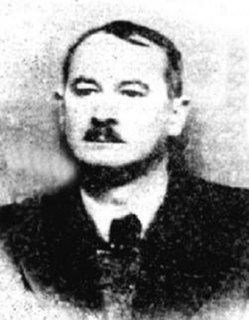 W
WFelix Aderca or F. Aderca, was a Romanian novelist, playwright, poet, journalist and critic, noted as a representative of rebellious modernism in the context of Romanian literature. As a member of the Sburătorul circle and close friend of its founder Eugen Lovinescu, Aderca promoted the ideas of literary innovation, cosmopolitanism and art for art's sake, reacting against the growth of traditionalist currents. His diverse works of fiction, noted as adaptations of Expressionist techniques over conventional narratives, range from psychological and biographical novels to pioneering fantasy and science fiction writings, and also include a sizable contribution to erotic literature.
 W
WIon Agârbiceanu was an Austro-Hungarian-born Romanian writer, journalist, politician, theologian and Greek-Catholic priest. Born among the Romanian peasant class of Transylvania, he was originally an Orthodox, but chose to embrace Eastern Catholicism. Assisted by the Catholic congregation of Blaj, he graduated from Budapest University, after which he was ordained. Agârbiceanu was initially assigned to a parish in the Apuseni Mountains, which form the backdrop to much of his fiction. Before 1910, Agârbiceanu had achieved literary fame in both Transylvania and the Kingdom of Romania, affiliating with Astra cultural society in 1912; his work was disputed between the rival schools of Sămănătorul and Poporanism. After a debut in poetry, he became a highly prolific author of novels, novellas, and other forms of prose, being rated as "Chekhovian" or "Tolstoyan" for his talents in describing the discreet suffering of common folk.
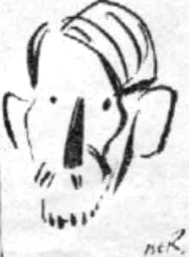 W
WIon Valentin Anestin was a Romanian graphic artist, engraver, painter, sculptor, journalist and dramatist. Noted as a caricaturist and art critic, he was the father of Ion Nuni Anestin, himself a visual artist and actor.
 W
WTudor Arghezi was a Romanian writer, best known for his unique contribution to poetry and children's literature. Born Ion N. Theodorescu in Bucharest, he explained that his pen name was related to Argesis, the Latin name for the Argeș River.
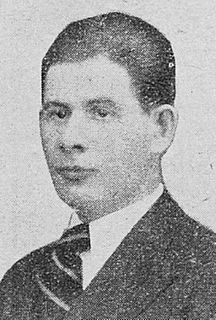 W
WIon Călugăru was a Romanian novelist, short story writer, journalist and critic. As a figure on Romania's modernist scene throughout the early interwar period, he was noted for combining a picturesque perspective on the rural Jewish-Romanian community, to which he belonged, with traditionalist and avant-garde elements. His early works, including the novel Copilăria unui netrebnic, bring together elements of Social Realism, Surrealism and Expressionism over a conventional narrative line based on oral tradition and the classics of Romanian literature. Călugăru, who moved from the moderate Contimporanul magazine to the Surrealist platform unu, was also one of the main contributors to Integral, a tribune for avant-garde literature in general. Although publicly known for his socialist convictions and his far left inclinations, he was, through his position at Cuvântul newspaper, present in the proximity of fascist circles, and had an ambiguous attitude toward his employer, the far right thinker Nae Ionescu.
 W
WIon Luca Caragiale was a Wallachian, later Romanian playwright, short story writer, poet, theater manager, political commentator and journalist. Leaving behind an important cultural legacy, he is considered one of the greatest playwrights in Romanian language and literature, as well as one of its most important writers and a leading representative of local humour. Alongside Mihai Eminescu, Ioan Slavici and Ion Creangă, he is seen as one of the main representatives of Junimea, an influential literary society with which he nonetheless parted during the second half of his life. His work, spanning four decades, covers the ground between Neoclassicism, Realism, and Naturalism, building on an original synthesis of foreign and local influences.
 W
WIordan Chimet was a Romanian poet, children's writer and essayist, whose work was inspired by Surrealism and Onirism. He is also known as a memoirist, theater, art and film critic, book publisher and translator. Chimet, who was an opponent of totalitarianism in general and of the Communist regime in particular, was persecuted by the latter as a dissident, and lived much of his life in obscurity. His experience as an employee of the cooperative society Centrocoop also made him one of the first professional copywriters in his country.
 W
WȘerban Cioculescu was a Romanian literary critic, literary historian and columnist, who held teaching positions in Romanian literature at the University of Iași and the University of Bucharest, as well as membership of the Romanian Academy and chairmanship of its Library. Often described as one of the most representative Romanian critics of the interwar period, he took part in the cultural debates of the age, and, as a left-wing sympathizer who supported secularism, was involved in extended polemics with the traditionalist, far right and nationalist press venues. From early on in his career, Cioculescu was also noted for his selective approach to literary modernism and the avant-garde, preferring to place his cultural references with Neoclassicism.
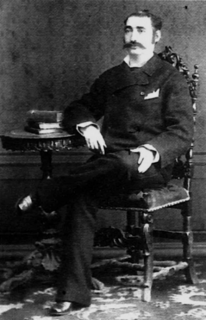 W
WMișu or Mihail Ion Văcărescu, most commonly known as Claymoor, was a Wallachian, later Romanian fashion journalist and gossip columnist, the son of poet Iancu Văcărescu. A retired cavalry officer in the Romanian Land Forces, he began writing in his late twenties or early thirties, reaching his fame as a contributor to the Francophone daily L'Indépendence Roumaine. He was widely respected for his verdicts on fashion, and, as an arbiter of taste, contributed to his paper's renown; however, people of his day also ridiculed him for his florid literary style, his political involvement with the Conservative Party, and his apparent homosexuality.
 W
WN. D. Cocea was a Romanian journalist, novelist, critic and left-wing political activist, known as a major but controversial figure in the field of political satire. The founder of many newspapers and magazines, including Viața Socială, Rampa, Facla and Chemarea, collaborating with writer friends such as Tudor Arghezi, Gala Galaction and Ion Vinea, he fostered and directed the development of early modernist literature in Romania. Cocea later made his name as a republican and anticlerical agitator, was arrested as an instigator during the 1907 peasant revolt, and played a leading role in regrouping the scattered socialist clubs. His allegiances however switched between parties: during World War I, he supported the Entente Powers and, as a personal witness of the October Revolution, the government of Soviet Russia, before returning home as a communist.
 W
WTraian Rafael Radu Demetrescu was a Romanian poet, novelist and literary critic, considered one of the first symbolist authors in local literature. Influenced by French writers such as François Coppée and the Decadent Maurice Rollinat, as well as by the local poet Mihai Eminescu, he was made popular by his poems, many of which served as the basis of popular romanzas. Receptive to impressionism and naturalism, he wrote a number of psychological novels and several short stories, some of which are remembered for their melancholic and occasionally macabre themes.
 W
WLucia Aurora Demetrius was a Romanian novelist, poet, playwright and translator.
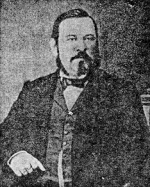 W
WNicolae Filimon was a Wallachian Romanian novelist and short-story writer, remembered as the author of the first Realist novel in Romanian literature, Ciocoii vechi şi noi, which was centered on the self-seeking figure Dinu Păturică. He was also a noted travel writer, folklorist, musician, and the first musical critic in his country.
 W
WBonifaciu Florescu was a Romanian polygraph, the illegitimate son of writer-revolutionary Nicolae Bălcescu. Born secretly outside his parents' native Wallachia, at Pest, he was taken by his aristocratic mother in France, growing up as an erudite Francophone and Francophile. Florescu graduated from the Lycée Louis-le-Grand and the University of Rennes, returning home at age 25 to become a successful lecturer, polemicist, and historian of culture. Influenced by his father's politics, he was for a while a prominent figure on the far-left of Romanian liberalism and nationalism, which pitted him against the conservative society Junimea, and against his own conservative cousin, Prime Minister Ion Emanuel Florescu. The conflict led to his losing a professorship at Iași University and being sidelined when applying for chairs at the University of Bucharest. His critique of Junimist literature, structured around a classical defense of prosody, inspired a libel by Mihai Eminescu—famously depicting Florescu as a "homunculus".
 W
WBenjamin Fondane or Benjamin Fundoianu was a Romanian and French poet, critic and existentialist philosopher, also noted for his work in film and theater. Known from his Romanian youth as a Symbolist poet and columnist, he alternated Neoromantic and Expressionist themes with echoes from Tudor Arghezi, and dedicated several poetic cycles to the rural life of his native Moldavia. Fondane, who was of Jewish Romanian extraction and a nephew of Jewish intellectuals Elias and Moses Schwartzfeld, participated in both minority secular Jewish culture and mainstream Romanian culture. During and after World War I, he was active as a cultural critic, avant-garde promoter and, with his brother-in-law Armand Pascal, manager of the theatrical troupe Insula.
 W
WAdolf Edmund George de Herz, commonly shortened to A. de Herz, also rendered as Hertz and Herț, was a Romanian playwright and literary journalist, also active as a poet, short story author, and stage actor. He was the scion of an upper-class assimilated Jewish family, with its roots in Austria-Hungary. His grandfather, Adolf Sr, was a controversial banker and venture capitalist, while his father, Edgar von Herz, was noted as a translator of Romanian literature. Adolf had a privileged childhood and debuted as a poet while still in high school, producing the lyrics to a hit romance. In his early work for the stage, Herz was a traditionalist inspired by Alexandru Davila and the Sămănătorul school, but later veered toward neoclassical literature and aestheticism. His "salon comedies", staged by the National Theater Bucharest, borrowed from various authors, including Roberto Bracco, Henri Lavedan, and Haralamb Lecca, peaking in popularity in 1913, with Păianjenul. By the start of World War I, Herz was also a writer of revues.
 W
WConstantin Al. Ionescu-Caion was a Romanian journalist and poet, primarily remembered for his legal dispute with humorist Ion Luca Caragiale. He was a Symbolist, a disciple of Alexandru Macedonski, and a militant Francophile, as well as a leading opponent of literary tradition. His scattered work comprises essays, short stories and prose poetry, noted for their cultural references, but made little impact on Romanian literature. As a journalist, Caion prioritized scandals, accusing Caragiale of plagiarism and losing the subsequent celebrity trial of 1902, before partly recanting and winning the retrial. Despite his own coquetries with Romanian nationalism, Caion focused his verve on Transylvania's contemporary nationalist literary current.
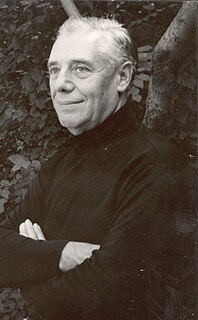 W
WGeorge Ivașcu was a Romanian journalist, literary critic, and communist militant. From beginnings as a University of Iași philologist and librarian, he was drawn into left-wing antifascist politics, while earning accolades as a newspaper editor and foreign-affairs journalist. Openly confronting the Iron Guard and fascism in general, he was persecuted and went into hiding during the first two years of World War II. He reemerged as a pseudonymous correspondent, then editorial secretary, of the magazine Vremea, slowly turning it away from fascism. In parallel, he also contributed to the clandestine left-wing press, preparing for an Allied victory.
 W
WIon Minulescu was a Romanian avant-garde poet, novelist, short story writer, journalist, literary critic, and playwright. Often publishing his works under the pseudonyms I. M. Nirvan and Koh-i-Noor, he journeyed to Paris, where he was heavily influenced by the growing Symbolist movement and Parisian Bohemianism. A herald of Romania's own Symbolist movement, he had a major influence on local modernist literature, and was among the first local poets to use free verse.
 W
WCamil Petrescu was a Romanian playwright, novelist, philosopher and poet. He marked the end of the traditional novel era and laid the foundation of the modern novel era in Romania.
 W
WGeorge or Gheorghe Ranetti, born George Ranete, was a Romanian poet, journalist and playwright, known as the founder and editor of Furnica magazine. A professional journalist from the late 1890s, he alternated between political dailies and literary reviews, being sympathetic to Romanian nationalism and traditionalism, and working under Ion Luca Caragiale at Moftul Român. By 1904–1906, he was active on the margin of left-wing traditionalism, or Poporanism, showing himself sympathetic to republican or generically anti-elitist ideologies. Such views and influences seeped into his activity at Furnica, which was for decades a prominent institution in Romanian humor.
Alexandru Robot was a Romanian, Moldovan and Soviet poet, also known as a novelist and journalist. First noted as a member of Romanian literary clubs, and committed to modernism and the avant-garde, he developed a poetic style based on borrowings from Symbolist and Expressionist literature. Also deemed a "Hermeticist" for the lexical obscurity in some of his poems, as well as for the similarity between his style and that of Ion Barbu, Robot was in particular noted for his pastorals, where he fused modernist elements into a traditionalist convention.
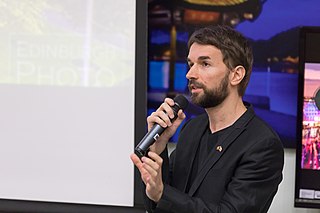 W
WProfessor Octavian Saiu is a scholar and professional theatre critic.
 W
WMihail Sebastian was a Romanian playwright, essayist, journalist and novelist.
 W
WGeorge Mihail Zamfirescu was a Romanian prose writer and playwright.